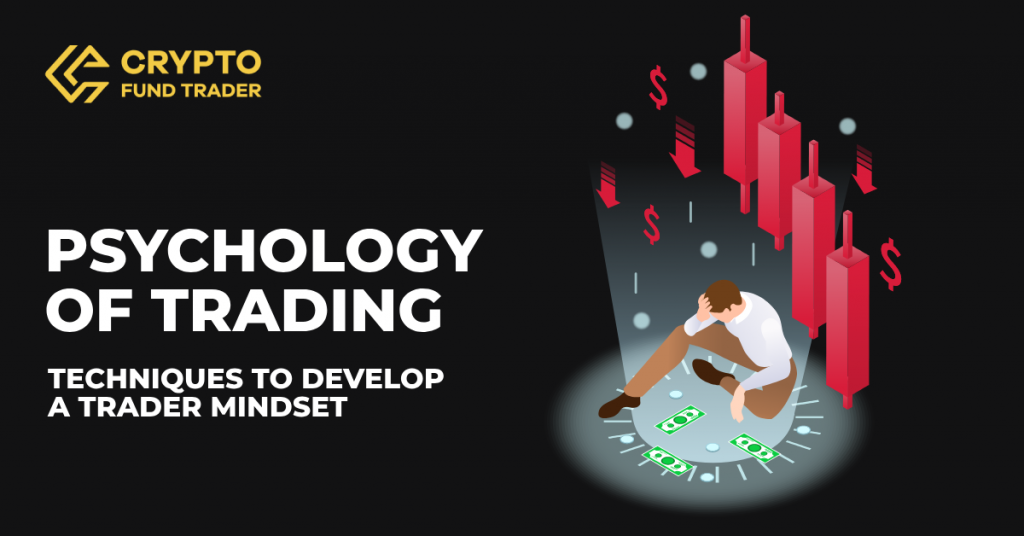
Psychology Of Trading. Techniques To Develop a Trader Mindset.
Trading has become a job that many people would like to live exclusively, however, statistics tell us that 90% of traders lose 90% of their money in the first 90 days.
In this article we’ll tell you how your psychology affects trading and how to learn to manage it to your advantage.
What is trading Psychology?
Trading psychology is the way you approach, think and feel about the stock market and its movements.
To become a successful trader, you need more than technical knowledge. You also need to develop the right mindset to navigate the psychological complexities of trading, or else you will get caught up in the emotions of the moment and make mistakes that will result in the loss of your capital.
Learn to control your psychology to increase your profits.
How to master trading psychology.
One of the biggest challenges you will have to face is to manage your emotions so as not to get carried away by spur of the moment decisions.
We must know ourselves and analyze our reactions in the face of potential losses. A trader with a negative attitude towards losses may have an emotional attachment and end up developing multiple trades to recover what he has lost. These situations can generate great damage in your trading account and we must move away from these behaviors.
In the face of a win or loss we must feel totally impartial since what matters is the long term result. You cannot let an isolated win or loss ruin your account, you just have to trust your strategy and be patient.
A profitable trader allows himself to lose when opening a trade a part of his capital in order to have the option of winning. Therein lies the difference between the one who is consistent over the long term and the one who is not because he does not follow a plan or a strategy.
Three key aspects are:
– Have a plan: do not have different habits every day; set yourself some guidelines and follow them. Set a maximum number of daily trades to avoid over-trading.
– Have a strategy: you may be inclined to enter or exit positions based on the actions of others, rather than on your own thorough research or analysis. This herd mentality can result in opening positions at the wrong time or exiting prematurely. Follow your own judgments and parameters to avoid being swayed by what others are doing.
– Long term mindset: a loss or a gain means nothing. You are always going to encounter some losses at a certain point, but we have to lose less often than we win. Perform an analysis of your annual profitability so that your judgment is not clouded by having a bad day. A bad streak or a good streak will always appear indistinctly, that’s why we must face them impartially thinking about annual/monthly results.
Manage emotions when trading.
Fear and greed drive many business decisions; they can cloud your judgment and impair your ability to make rational decisions.
Some examples to avoid:
– Fear of missing out (FOMO): a psychological effect experienced by all types of traders from experts to new traders. It can make us feel that we are missing a great opportunity by making us make impulsive decisions without any rational analysis. Don’t need to enter the market without doing your own analysis first. If a trade is born out of your impulses or greed avoid taking it.
– Over-trading: Driven by the need to recover what was lost, many traders open compulsive operations. We must stop these tendencies by setting ourselves some rules when trading.
– Not using Stop – Loss: For fear of losing some traders modify their stoploss constantly moving the price at which they had planned to exit. This tendency exposes even more risk on your capital. Stick to your decisions and do not improvise, let the outcome be in the hands of the market, you cannot know what is going to happen. You must make the best decision possible with the data provided by the chart and let the market do its job. If your decision fits your parameters, feel unbiased in the face of a loss and remain consistent.
– Closing profits too soon: On the other side of the equation it also happens that as soon as we see some profit we quickly close our trade for fear of losing profits. This behavior will not allow us to be profitable in the long term and we will be closing trades early reducing profits and extending losses by moving away the stop loss. We must have a cool mind and avoid modifying our operations, we must only trust in our strategy and in the long term for it to take effect. We cannot be tolerant to loss and intolerant to profit.
Why is Trading Psychology Important?
Mastering trading psychology is a crucial component of achieving consistent success in the financial markets. By understanding and managing emotions, we will avoid common mistakes.
Although nothing can guarantee that every trade will generate profits, you can follow the psychology and stock market habits of the most successful traders to increase the likelihood of greater success.
Over time you will develop a trading psychology that will allow you to steer more and more of your emotions away from your trading.
We hope you liked this article and… see you in the next one!